Abstract
This study examined the effect of pH on the metabolism of glucose by Neisseria gonorrhoeae. Radiorespirometric studies revealed that cells growing at pH 7.2 or 8.0 metabolized glucose primarily (ca. 80%) via the Entner-Doudoroff pathway. The remainder of the glucose was metabolized via the pentose phosphate pathway (ca. 20%). The tricarboxylic acid cycle was not active during glucose catabolism at either pH 7.2 or 8.0, and acetate accumulated in the medium. Cells growing at pH 6.0 had markedly increased pentose phosphate pathway activity (ca. 50%) and a functioning tricarboxylic acid cycle. The alteration in pathways was not due to differences in growth rate, but to the pH of the medium. Chemical fractionation of labeled cells and total hexose analyses revealed that growth pH markedly affected the composition of the gonococcus.
Full text
PDF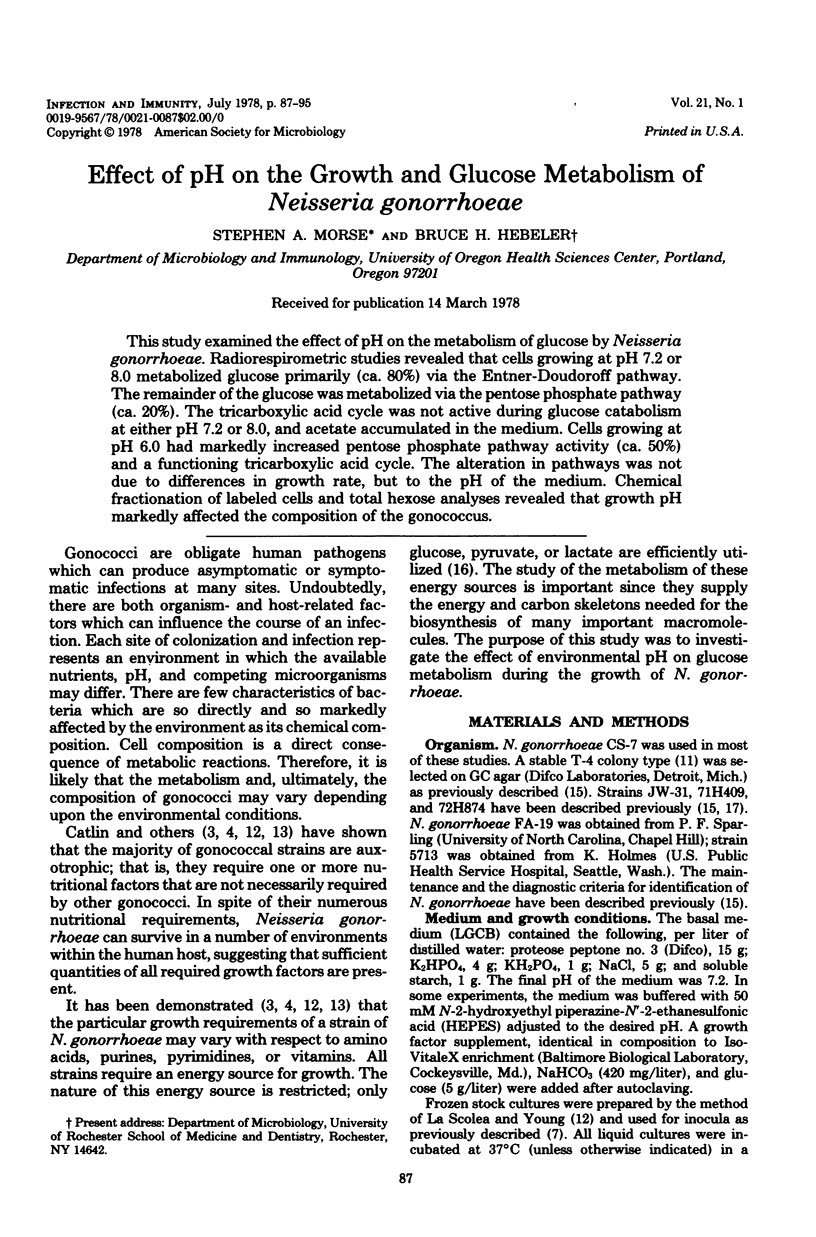
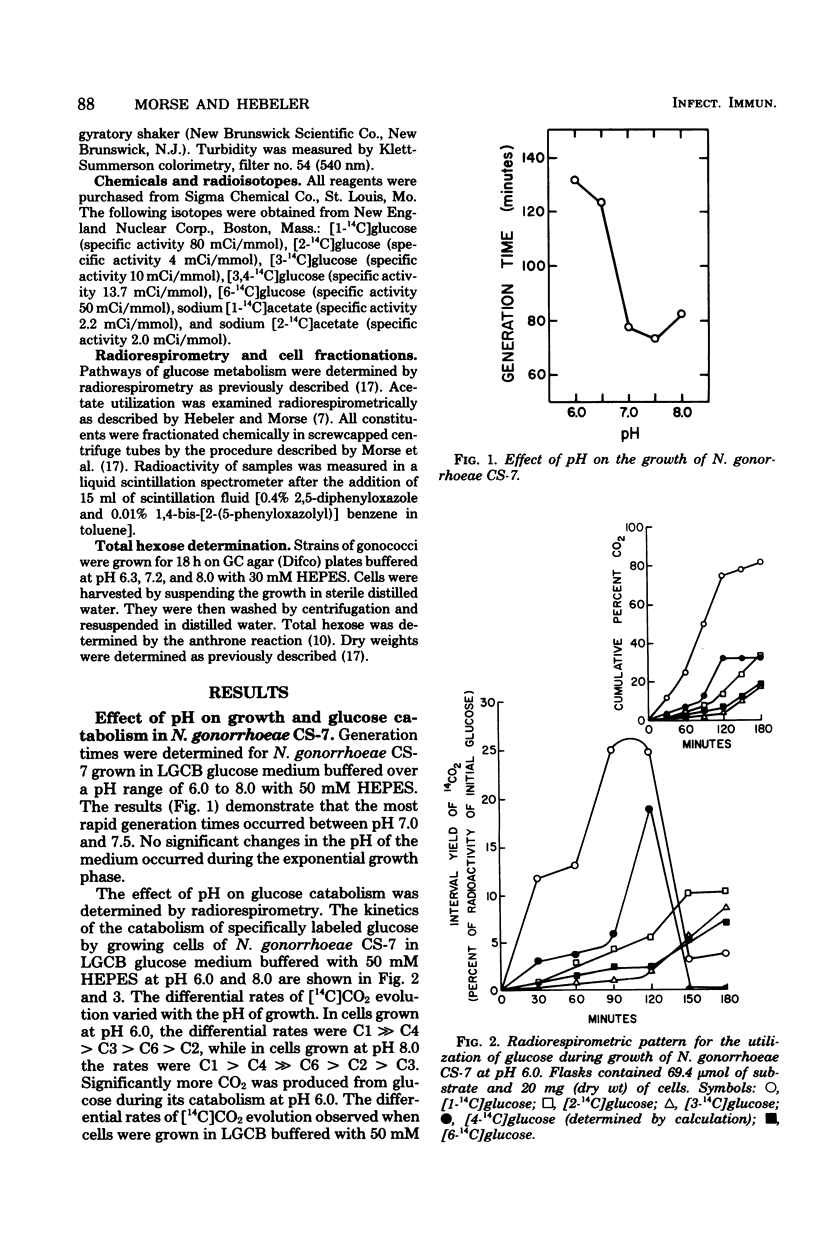
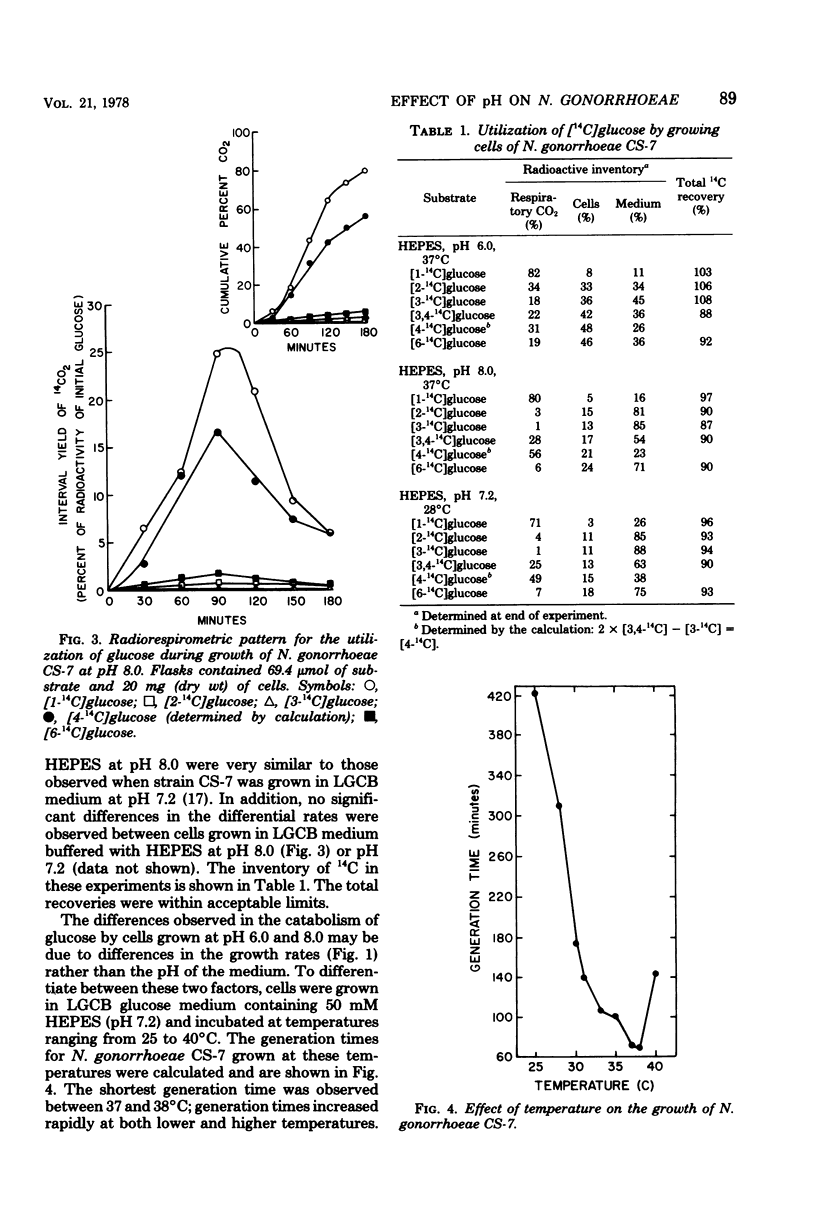
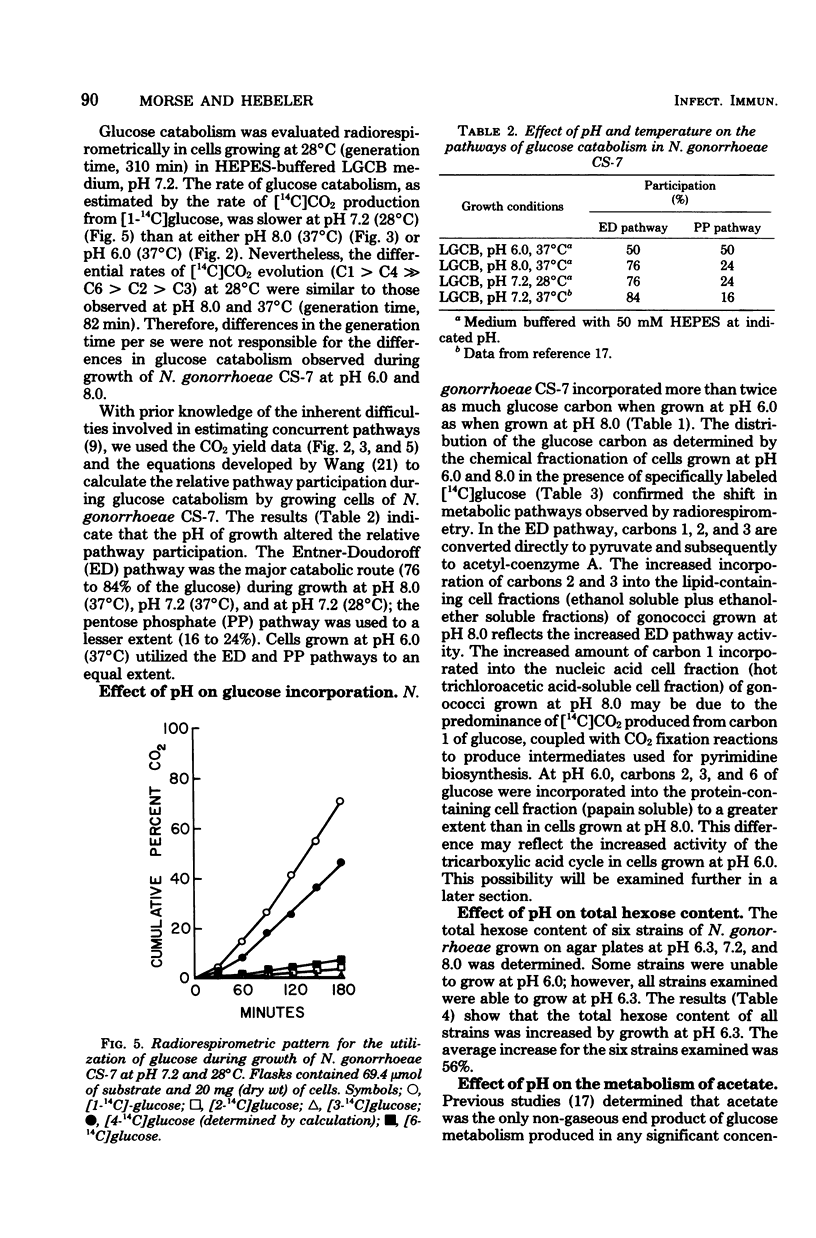
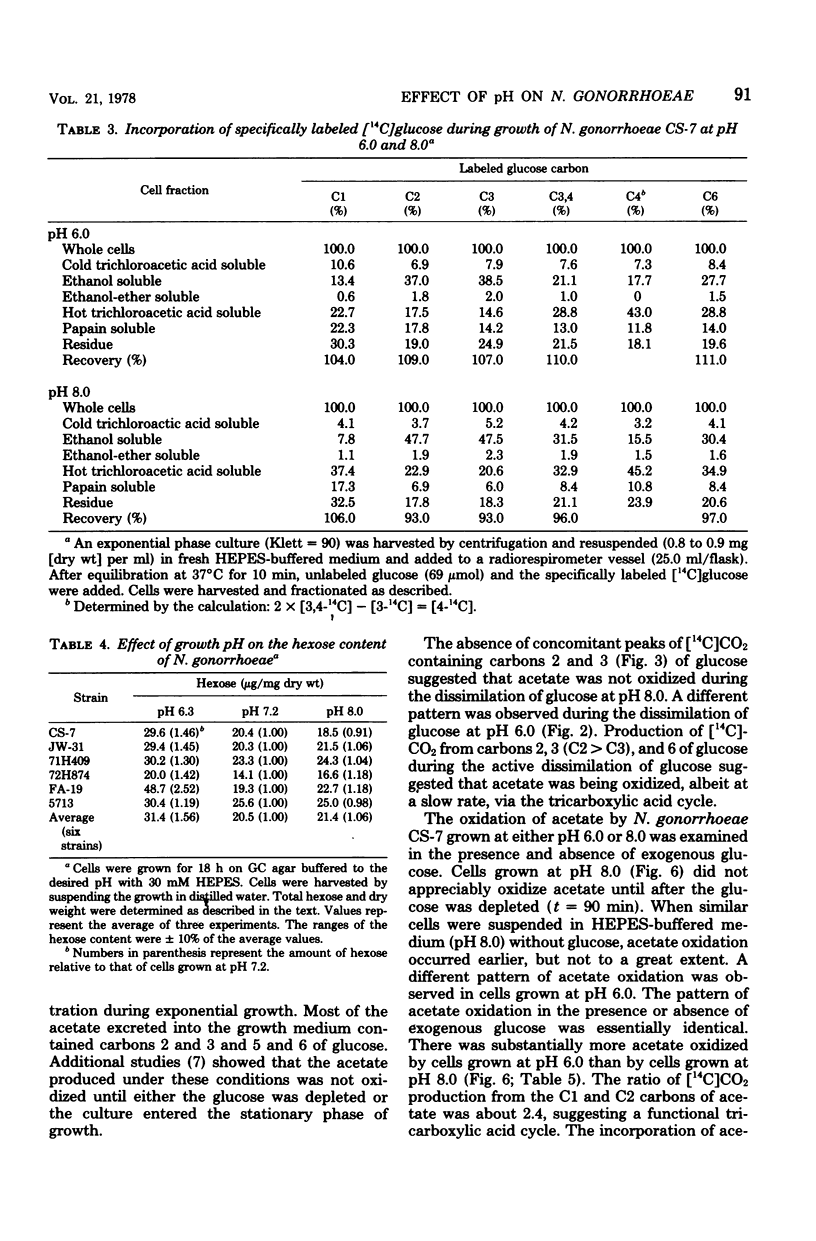
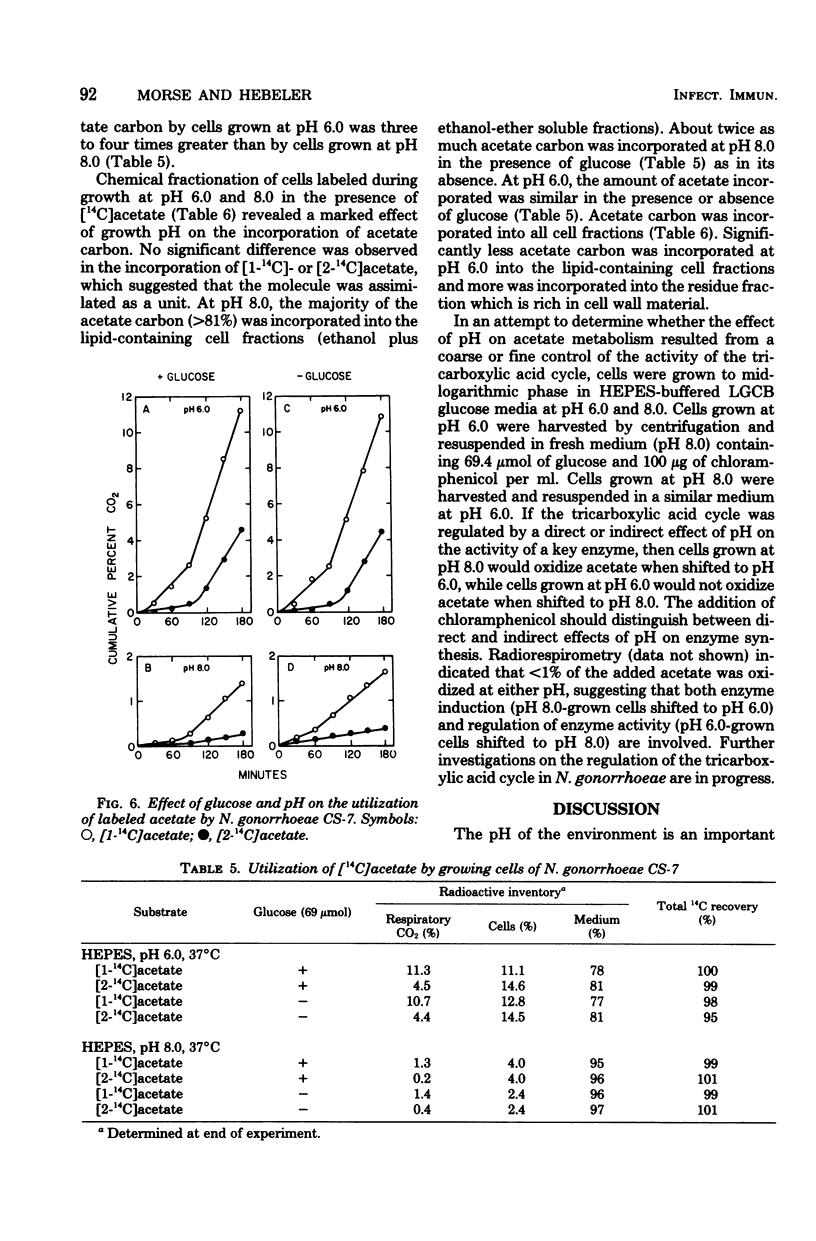
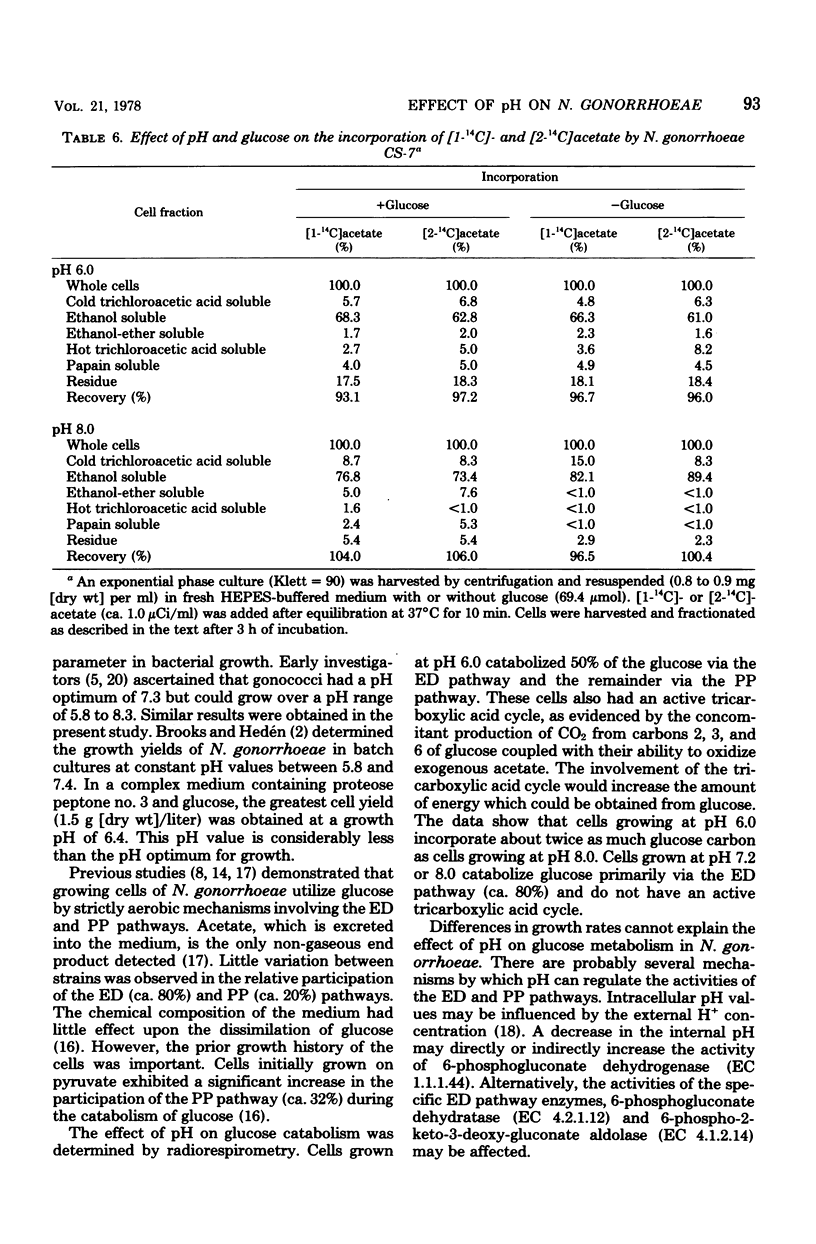
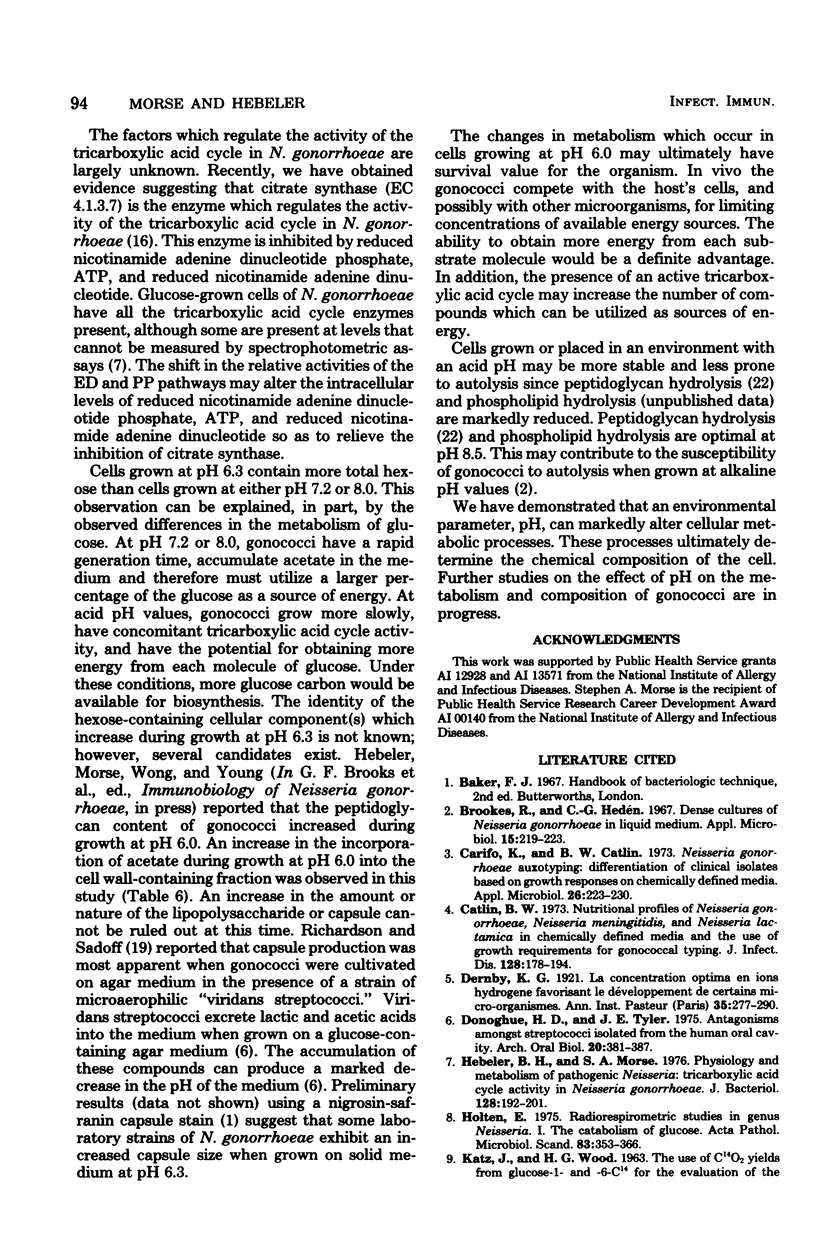
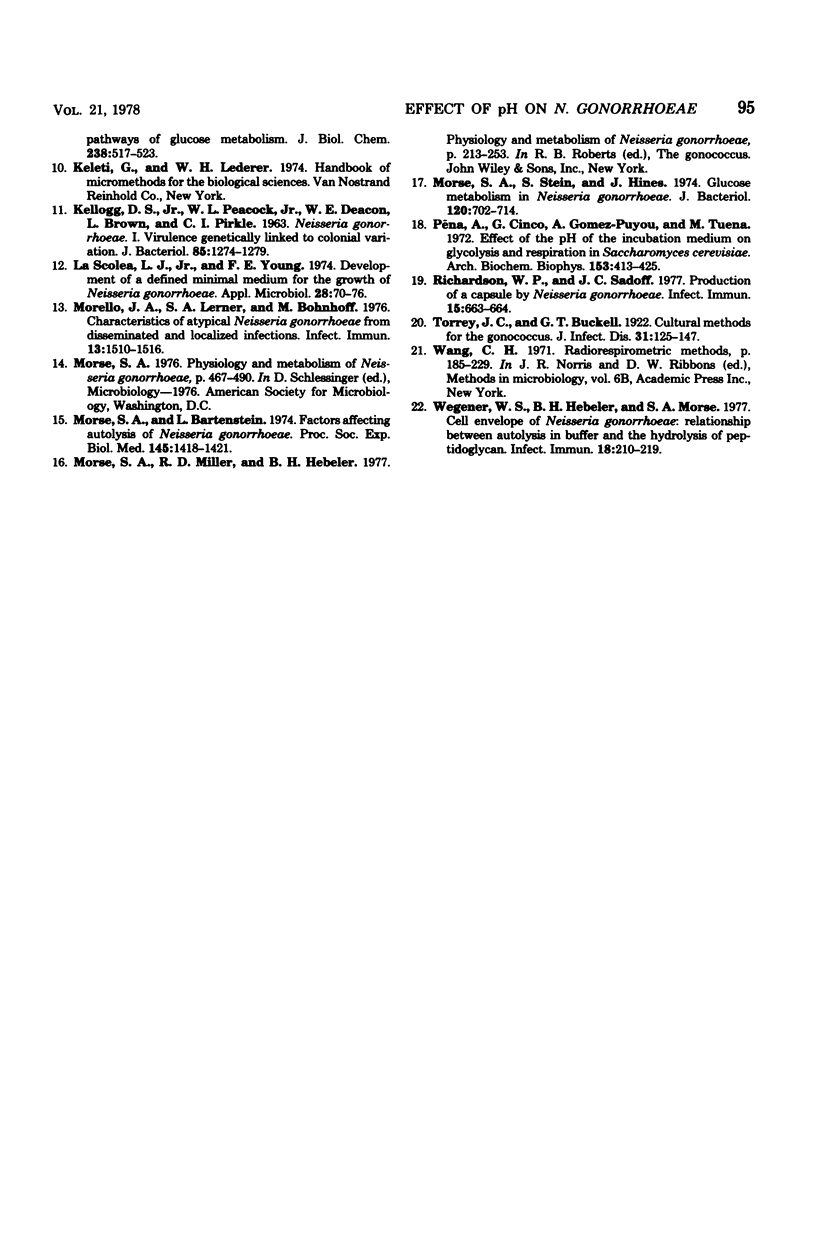
Selected References
These references are in PubMed. This may not be the complete list of references from this article.
- Brookes R., Hedén C. G. Dense cultures of Neisseria gonorrhoeae in liquid medium. Appl Microbiol. 1967 Mar;15(2):219–223. doi: 10.1128/am.15.2.219-223.1967. [DOI] [PMC free article] [PubMed] [Google Scholar]
- Carifo K., Catlin B. W. Neisseria gonorrhoeae auxotyping: differentiation of clinical isolates based on growth responses on chemically defined media. Appl Microbiol. 1973 Sep;26(3):223–230. doi: 10.1128/am.26.3.223-230.1973. [DOI] [PMC free article] [PubMed] [Google Scholar]
- Catlin B. W. Nutritional profiles of Neisseria gonorrhoeae, Neisseria meningitidis, and Neisseria lactamica in chemically defined media and the use of growth requirements for gonococcal typing. J Infect Dis. 1973 Aug;128(2):178–194. doi: 10.1093/infdis/128.2.178. [DOI] [PubMed] [Google Scholar]
- Donoghue H. D., Tyler J. E. Antagonisms amongst streptococci isolated from the human oral cavity. Arch Oral Biol. 1975 May-Jun;20(5-6):381–387. doi: 10.1016/0003-9969(75)90031-x. [DOI] [PubMed] [Google Scholar]
- Hebeler B. H., Morse S. A. Physiology and metabolism of pathogenic neisseria: tricarboxylic acid cycle activity in Neisseria gonorrhoeae. J Bacteriol. 1976 Oct;128(1):192–201. doi: 10.1128/jb.128.1.192-201.1976. [DOI] [PMC free article] [PubMed] [Google Scholar]
- Holten E. Radiorespirometric studies in genus Neisserai. I. The catabolism of glucose. Acta Pathol Microbiol Scand B. 1975 Aug;83(4):353–366. [PubMed] [Google Scholar]
- KATZ J., WOOD H. G. The use of C14O2 yields from glucose-1- and -6-C14 for the evaluation of the pathways of glucose metabolism. J Biol Chem. 1963 Feb;238:517–523. [PubMed] [Google Scholar]
- KELLOGG D. S., Jr, PEACOCK W. L., Jr, DEACON W. E., BROWN L., PIRKLE D. I. NEISSERIA GONORRHOEAE. I. VIRULENCE GENETICALLY LINKED TO CLONAL VARIATION. J Bacteriol. 1963 Jun;85:1274–1279. doi: 10.1128/jb.85.6.1274-1279.1963. [DOI] [PMC free article] [PubMed] [Google Scholar]
- La Scolea L. J., Jr, Young F. E. Development of a defined minimal medium for the growth of Neisseria gonorrhoeae. Appl Microbiol. 1974 Jul;28(1):70–76. doi: 10.1128/am.28.1.70-76.1974. [DOI] [PMC free article] [PubMed] [Google Scholar]
- Morello J. A., Lerner S. A., Bohnhoff M. Characteristics of atypical Neisseria gonorrhoeae from disseminated and localized infections. Infect Immun. 1976 May;13(5):1510–1516. doi: 10.1128/iai.13.5.1510-1516.1976. [DOI] [PMC free article] [PubMed] [Google Scholar]
- Morse S. A., Bartenstein L. Factors affecting autolysis of Neisseria gonorrhoeae. Proc Soc Exp Biol Med. 1974 Apr;145(4):1418–1421. doi: 10.3181/00379727-145-38025. [DOI] [PubMed] [Google Scholar]
- Morse S. A., Stein S., Hines J. Glucose metabolism in Neisseria gonorrhoeae. J Bacteriol. 1974 Nov;120(2):702–714. doi: 10.1128/jb.120.2.702-714.1974. [DOI] [PMC free article] [PubMed] [Google Scholar]
- Peña A., Cinco G., Gómez-Puyou A., Tuena M. Effect of the pH of the incubation medium on glycolysis and respiration in Saccharomyces cerevisiae. Arch Biochem Biophys. 1972 Dec;153(2):413–425. doi: 10.1016/0003-9861(72)90359-1. [DOI] [PubMed] [Google Scholar]
- Richardson W. P., Sadoff J. C. Production of a capsule of Neisseria gonorrhoeae. Infect Immun. 1977 Feb;15(2):663–664. doi: 10.1128/iai.15.2.663-664.1977. [DOI] [PMC free article] [PubMed] [Google Scholar]
- Wegener W. S., Hebeler B. H., Morse S. A. Cell envelope of Neisseria gonorrhoeae: relationship between autolysis in buffer and the hydrolysis of peptidoglycan. Infect Immun. 1977 Oct;18(1):210–219. doi: 10.1128/iai.18.1.210-219.1977. [DOI] [PMC free article] [PubMed] [Google Scholar]


